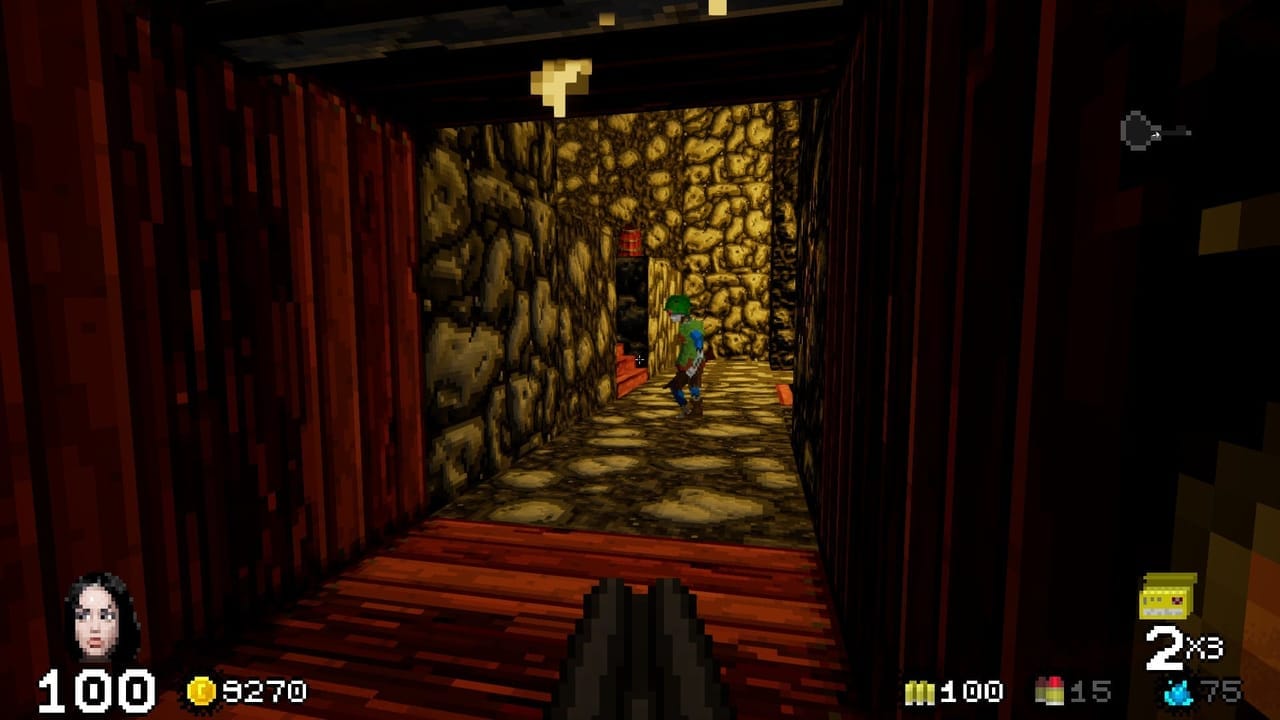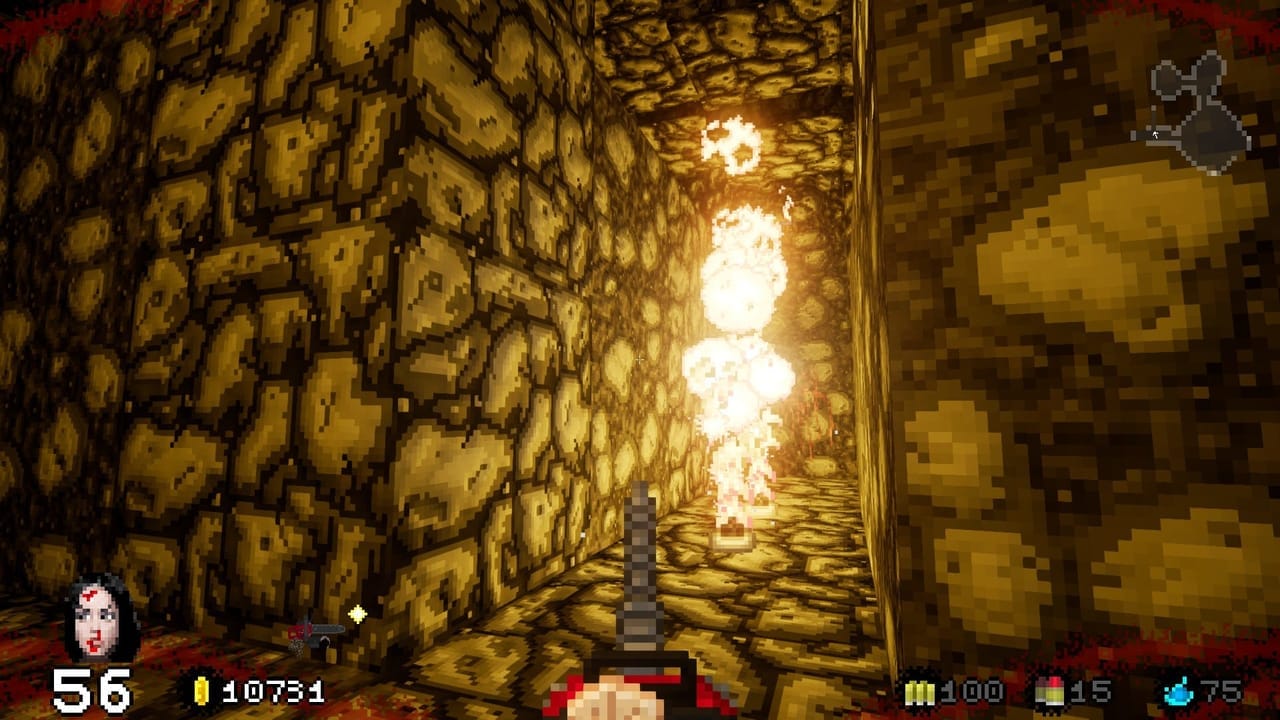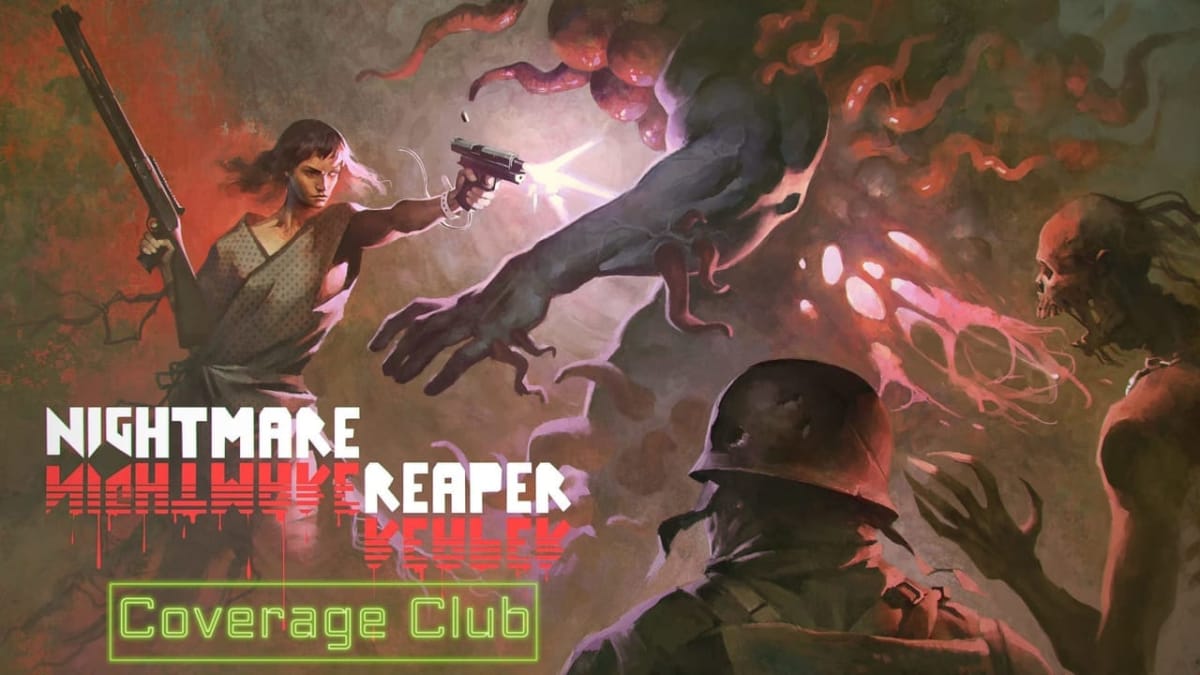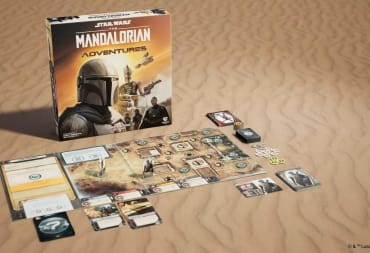"Retro-inspired" can be a double-edged term. On the one hand, it's laudable to evoke a bygone era if you're doing so with a desire to fix what was broken. On the other hand, too many retro-inspired games just wallow in nostalgia and bring the good with the bad. In the former camp are games like Shovel Knight, DUSK, and A Hat In Time. In the latter are failures like Yooka-Laylee and Mighty No. 9. Nightmare Reaper is a none-more-old-school FPS inspired by the likes of DOOM and Quake. I sat down with the first five hours or so of Blazing Bit Games' paean to a bygone age to see if it matches the classics or merely mimics them.
Nightmare Reaper espouses the Dark Souls storytelling method for the most part. There's very little dialogue and the game tells its story via background detail and text logs. A game like this really wants to keep interruption of the action to a minimum, so that's good. Players who want to ignore the story in Nightmare Reaper won't find it too much of a struggle. Those who do want to dig a little deeper into the lore can do so at their leisure. Nightmare Reaper's Steam page promises a focus on intense combat, so it's far more important for the game to get that aspect right rather than its narrative.

That combat is the glue holding the experience together. For the most part, it works pretty well. The most important weapon for games like this to get right is the shotgun; it's got to have that visceral kick to it that makes each shot feel like a lightning bolt from Zeus himself. The shotgun in Nightmare Reaper is powerful and impactful, so using it to blow pixelated bad guys into teeny-tiny bits never stops feeling satisfying. You'll feel the punch of other weapons, too. Even the lowly pistol packs a punch, so if you're the kind of stuffed shirt that won't go anywhere near a rocket launcher you're still going to have fun with Nightmare Reaper.
Unfortunately, the wraparound experience isn't quite as compelling. Stages in Nightmare Reaper don't quite fulfill the potential of its combat. I'm not sure if the stages use procedural generation, but it doesn't matter either way. They're lacking a handcrafted feel to make exploration feel rewarding. Exploring levels does yield cool weapons when you venture off the beaten path, though, and secrets are fun to get thanks to the mini-platforming challenges that usually precede them. Occasionally, Nightmare Reaper does commit the unforgivable sin of inadequately signposted death traps that you can't escape from, and that's not fun. I want to know I've died because I made a mistake, not because the level designer is trolling me.
The combat is satisfying, so it's good that Nightmare Reaper places this aspect front and center. Rooms frequently contain multiple enemies of different types. This forces you to consider a strategic approach to your senseless violence. When an enemy lands a hit it's usually pretty painful, so you're encouraged to use the environment and your weaponry to their fullest. Occasionally, combat can feel a little cheap; some enemies have long-range guns that are impossible to dodge, so if you're unlucky enough to encounter a lot of these enemies at once you're toast. Still, it's a small price to pay for the visceral satisfaction of battle in the game.

There are plenty of neat little touches, too. The skill tree takes the form of a cutesy little 2D platformer mini-game; when you complete levels, you'll unlock new skills like faster walk speed or more maximum health. Playing these games requires coins which you can get by killing enemies or completing challenges. In this way, Nightmare Reaper unifies its various systems and makes each one feel meaningful. Gathering coins means more skills, which means more chances to gather coins. All of it in service of the game's central loop, which feels satisfying when it's allowed to get going.
Sometimes, Nightmare Reaper's design feels at odds with its stated mission. There are certain enemies that I still haven't worked out how to defeat since conventional weaponry doesn't seem to work on them. The game doesn't really do the legwork required to help you understand how to surmount some of its more esoteric challenges. Nightmare Reaper wants to be a power fantasy, but its rooms full of enemies wielding long-range weaponry can feel more frustrating than fun. The difficulty here sometimes feels a bit more like a rollercoaster than a curve. Luck of the draw means sometimes the level's layout favors you and sometimes it doesn't.
There's also the biggest bugbear with Nightmare Reaper: its weapon system. Games like this really should grant access to a consistent arsenal of weaponry, but Nightmare Reaper randomizes weapons and only allows you to keep one after each stage. It's not possible to know what enemies lie in wait for you in each stage. As such, making the wrong weapon decision can be a serious problem without an immediate fix. I can't see any real reason why weapons aren't simply consistent between stages. This design choice doesn't suit the game and feels off in the context of a super-cranked-up violent FPS.
Despite these flaws, Nightmare Reaper is a consistently good time. The combat here is punchy enough to forgive myriad minor niggles, which is all there is to complain about. Every time I feel myself getting frustrated, I blast an enemy into oblivion with the pump-action shotgun and all is well again. Retro FPS games live and die on their combat, and Nightmare Reaper more than delivers in this area. I'm super-excited to play more when the game launches this summer.
TechRaptor previewed Nightmare Reaper on PC via Steam with a code provided by the publisher. The game currently lists a Summer 2019 Early Access release.
Have a tip, or want to point out something we missed? Leave a Comment or e-mail us at tips@techraptor.net






